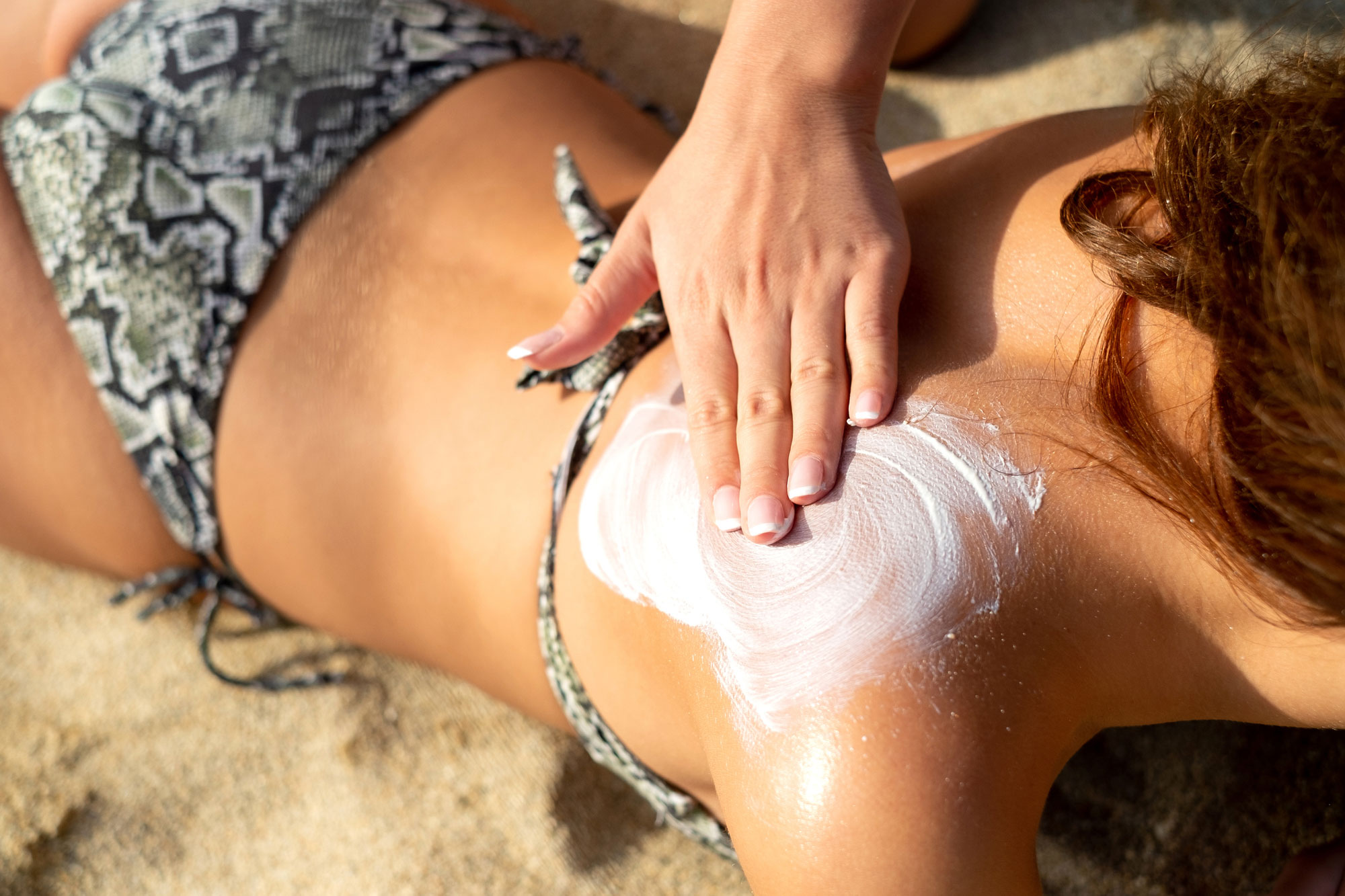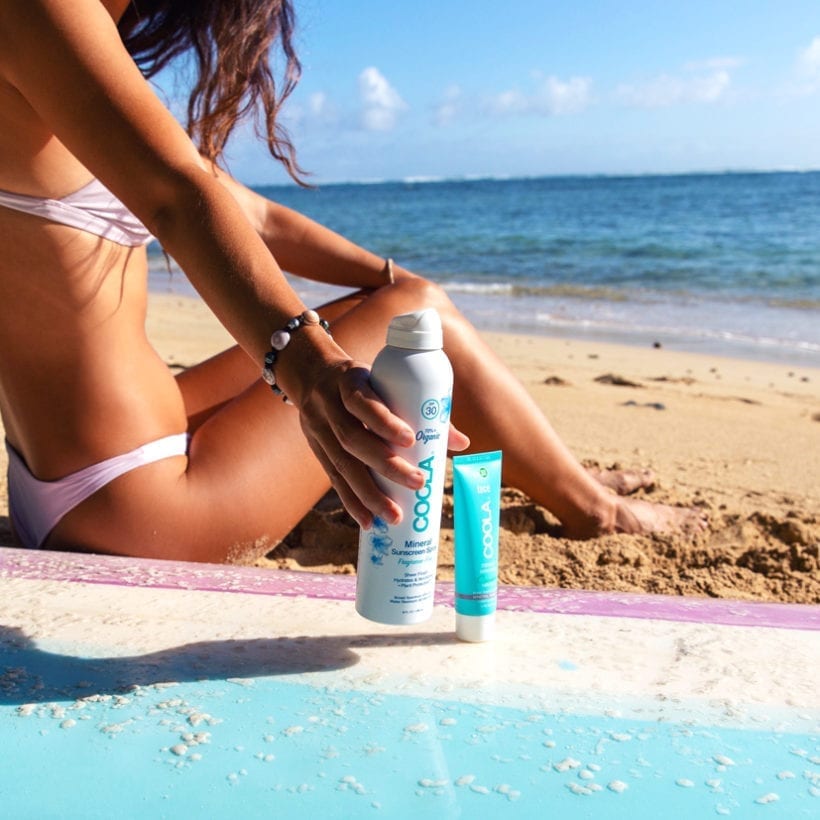If you’re diligent about wearing sunscreen every day (aren’t we all?), chances are you run out of the product long before its typical three-year expiration date. But perhaps you’re digging into your cabinet, and you come across an old bottle, and you could wonder, “Is this still okay to slather on my skin?”
Many sunscreens will have an expiry label so you can tell when your sunscreen has gone “bad,” — and it’s important to stick to it. Even though it can be tempting to disregard this information, it’s there to protect you and the health of your skin, notes Rachel Nazarian, M.D., a dermatologist with Schweiger Dermatology Group. “The expiration date on these products gives us an indication of the date past which the product may become ineffective, less potent, or even more likely to irritate or damage our skin,” she says. “It’s similar to expiration dates that food carry, and like some foods, many skin care products contain preservatives that allow them to be more shelf-stable and less likely to grow bacteria, thus allowing them to be safely used for several months, or even a year, without causing harm.”

Bacteria isn’t the only concern when using a sunscreen whose expiration date has long passed. The ingredients are likely no longer active, leaving your skin more susceptible to the effects of ultraviolet (UV) radiation. Chemical sunscreens that contain active ingredients like oxybenzone can oxidize after their expiration date, deeming them less effective. Physical sunscreens (think: zinc oxide) don’t have that issue, but they still degrade over time. This could increase your risk of sunburn and predispose you to the other consequences of unprotected sun exposure, such as photoaging and an increased risk of skin cancer, warns Brendan Camp, M.D., a dermatologist at MDCS Dermatology.
But the caveat is that the Food and Drug Administration doesn’t require expiration dates to be printed on sunscreen on all brands. So, if you’ve come across a mystery bottle that’s been sitting around for who knows how long, or you’re tempted to use one that’s just past its freshness date, and you’re wondering if it’s still okay to use it, read on for the tell-tale signs that your sunscreen isn’t usable anymore.
Meet the Experts
Rachel Nazarian, M.D., F.A.A.D. is a dermatologist with Schweiger Dermatology Group in New York City.
Brendan Camp, M.D., is a Manhattan-based dermatologist at MDCS Dermatology.
Blair Murphy-Rose, M.D., is a cosmetic and medical dermatologist in NYC and the Hamptons with Laser & Skin Surgery Center of New York and Clinical Instructor of Dermatology at NY Presbyterian Hospital – Weill Cornell Medical Center.
The consistency is off
When you open a new bottle of sunscreen, the product is usually somewhat thick and has a uniform consistency — which is important to recognize and get a good feel for, notes Dr. Camp. “If you open the bottle and the contents seem runny or chunky, it could mean that the integrity of the product has been altered by time, and it is a good indication you should reach for a new sunscreen bottle,” he says. It’s possible that consistency issues can happen even before its expiration date, especially if you’re handling the tube without clean hands and exposing the formula to germs. And when there are bacteria in any of your cosmetic products, that could lead to skin irritation and acne.

The color has changed, or it has a funky smell
Many sunscreens are a uniform white color or, in some cases, a slightly tinted tone. Sunday Riley Light Hearted Broad Spectrum SPF 30 has a gorgeous pink-ish tint out of the bottle that seamlessly melts into your skin without a chalky residue. “If the sunscreen you are used to using has an altered color, meaning that it looks yellowish or a different shade than when you first used it, it may be an indication the product has expired,” says Dr. Camp. Also, if your sunscreen has a weird smell, it has probably been contaminated.
You’re still getting burnt
If you’re using any sunscreen — and applying it correctly and often — yet you’re still getting burnt, it means it’s time to toss your sunscreen, no matter the expiration date. The formula has likely broken down, and it’s no longer doing its job.

You left it sitting in the heat too long
One of the most common reasons your sunscreen is no longer effective (even before its official expiration date) is because sunscreen is left in extreme temperatures, explains Dr. Nazarian. If you keep your sunscreen in your overheated car or it’s been left out all day in the sun while relaxing by the pool, it will break down faster thanks to the heat.
To help prolong the shelf life of your sunscreen, it’s a good idea to avoid storing it in direct sunlight when you’re out and about. At home, make sure to keep your sunscreen at room temperature, according to Blair Murphy-Rose, M.D., a cosmetic and medical dermatologist.
When in doubt, give your skin some extra insurance with protective wear (UV-protective clothing, sunglasses, and wide-brimmed hats) that can act as a trusty backup in case your sunscreen is not working or has worn off before you have reapplied.
We only recommend products we have independently researched, tested, and loved. If you purchase a product found through our links, Sunday Edit may earn an affiliate commission.







